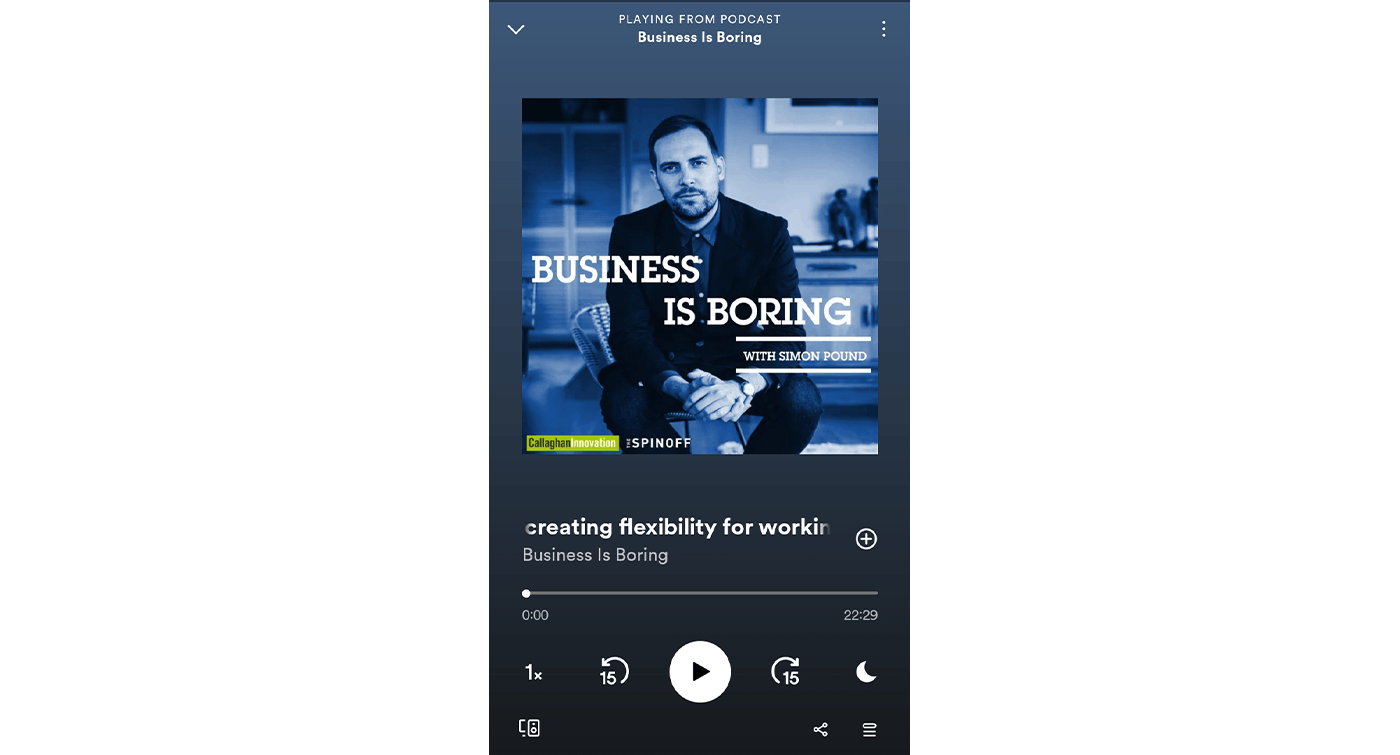MEDIA • 18 MAY 2018 • 4 MIN READ
The Spinoff – Business is boring

Business is Boring is a weekly podcast series presented by The Spinoff in association with Callaghan Innovation. Host Simon Pound speaks with innovators and commentators focused on the future of New Zealand, with the interview available as both audio and a transcribed excerpt.
Many small business people get into business to pursue their passion, yet end up spending a lot of time on the admin and accounts, and the salt in the wound is that this can also be wildly expensive black hole to throw hours, dollars and tears down. It’s a pain-point alright. And where there’s pain there’s profit to be had.
Enter Beany, a company that has come in to ride the wave of disruption currently hitting accounting services. They are adding their own push by offering a service that, for a low fixed fee, connects small businesses with their accountants and to work in the cloud. They’re providing great professional services efficiently and cheaply, and allowing new ways of working both for the accountants and the businesspeople. The CEO Sue De Bievre braved the Spinoff stairs to talk to Simon here.
Tell me about the accountants that you’ve got on your service. What kind of people are taking advantage of the flexibility to work from anywhere?
Not all but many of our accountants are chartered accountants – obviously we want to make sure that we’re offering a high quality service. Many of them are mothers who found it really hard to work in a traditional office. Just to give you an example, Jenny, who’s our lead accountant, she’s an amazing woman; very highly qualified; very highly experienced; and has five children. So, for her, managing the requirements of mothering five children and working in a traditional office space where she has to clock in at 8:30am and has to clock out at 5pm just made it impossible for her. She loves working for Beany because if one of the children is sick, she can just take time off. If she needs to duck out and go to the school play for a couple of hours, that’s totally fine in Beany. We really respect that family is first and accountancy is second.
You’ve got 20-odd accountants. Is there quite a large proportion of them that are working mothers or back in the workforce?
Probably 70-80 percent are working mothers.
What was it like to come into finance and tech? Being a chartered accountant, you’ve had lots of journeys into finance, but to set up a company like this in direct competition to really established, old school accounting businesses, what’s that like?
I guess if I’m being honest I would say that challenging the status quo was part of my motivation. What I have seen in my profession since the get go – I don’t think anything’s really changed since – is the classic model is four guys in the sunny offices down the side of the building and 25 women sitting in the middle on substantially less pay. For me, I wanted to challenge that model. I wanted to kinda spring those women out of the cubicles, give them gender pay parity, and give them the status that they deserved.
What leads to that? I was talking to a lawyer recently who was saying the reason you have more male partners is they don’t take five years off to have kids and so they just keep the path going to the partnership.
I don’t know why we had that gender pay gap. I obviously don’t buy that argument. For me, it’s all about output and productivity in that moment. I don’t need women to be sitting at the desk for 8 or 9 hours a day to be productive. They can be super productive, if not more productive, if you, I dunno, work 9 to 12. We have some accountants who just work 9 to 12 every day. It’s about productivity and output and care for the clients, and I think you can do that part-time.
As opposed to that old partnership model which is endurance hours and never taking the foot away.
Exactly. I always tell this anecdote of when I was applying for one job as a chartered accountant, a senior experience one. I said I only wanted to work 30 hours a week and the male partner said to me that they really needed to “fill the desk” for 40 hours and I obviously got from that that the desk was slightly more important than I was. So I guess I’m challenging that. I’m putting the professional at the heart of it.
What can be done to make that situation better?
I guess doing what I’m doing. And talking about it. I think we need to talk a little bit more about this as a country. I know Anna Curzon, who was the MD of Xero, spoke extensively about this. And Rod Drury, to his credit. Just talking about the untapped potential in our economy by not utilising these highly experienced, trained professionals.
Originally Published by thespinoff – May 18 2018
Share: